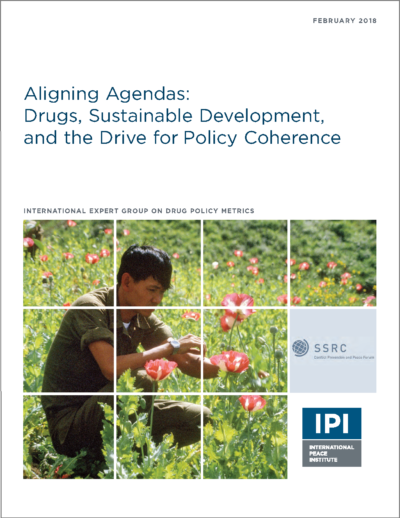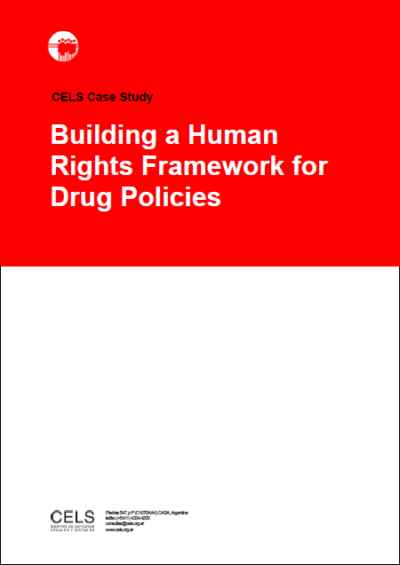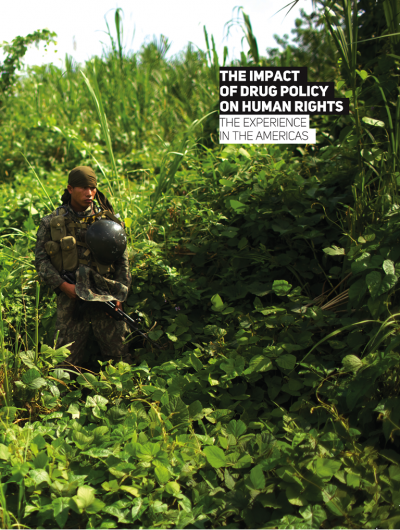100 Days of Javier Milei’s government: vindicates the dictatorship and attempts to militarize domestic security policies
Javier Milei’s government vindicates the criminal plan of the armed forces carried out during the 1970s. But it is not just an attempt to rewrite history and deny these crimes; it also aims to legitimize his policies in the present.
The impact of drug policies: time to listen to the Global South
CELS joined organizations from Asia, Africa and Latin America to contribute our regional perspectives to the 54th session of the Human Rights Council.
Urban drug trafficking, migrants, and the defense of activists: some of Cels’ topics for #fmdh23.
Between March 20 and 24, we will participate in the 3rd World Forum on Human Rights, organized by UNESCO, in Buenos Aires. As members of several committees, CELS is participating in more than a dozen activities for exchange and debate.
Racism, police violence and drug policies on the UN Human Rights Council agenda
Together with other human rights organizations, in this session we worked on various security and human rights issues.
IACHR sounds alarm over rising militarization in the region
In a hearing they described as “historic,” members of the Inter-American Commission on Human Rights (IACHR) affirmed that the militarization of public security leads to an exponential increase in human rights violations. They also cautioned about the return of the national security doctrine in the region.
Militarization of the region at the IACHR
The militarization of public security is on the rise across the Americas, with very troubling consequences. For that reason, 17 organizations from 10 countries requested a regional hearing before the Inter-American Commission on Human Rights (IACHR), which will be held on December 6.
The militarization of drug policies worsens human rights violations
At an intersessional meeting of the Commision on Narcotic Drugs (CND) of the United Nations, CELS made a presentation addressing the “fight” against drug trafficking, militarization of public security and its harmful effects on human rights. The discussions at the CND will culminate in March with a review of the global drug strategy over the last decade.
Argentine judiciary criminalizes an age-old custom
A federal court ruled for pre-trial detention in the case of a young Bolivian who was buying coca leaves for a festival. He has been held in a maximum-security federal prison for a month.
Dangerous step toward the militarization of domestic security
The executive branch published a decree that modifies Argentina’s Armed Forces policy. The changes alter the cross-party agreement on the missions assigned to the Armed Forces, forged after the return of democracy and over the following 30 years.
Aligning Agendas: Drugs, Sustainable Development, and the Drive for Policy Coherence
Autor/a: International Expert Group on Drug Policy Metrics
28 pgs.
ver más
Human Rights in Argentina: Our 2017 report in broad strokes
Argentina is known globally for its hard-fought Memory, Truth and Justice process over the crimes committed during the 1976-1983 dictatorship. But numerous other human rights achievements have been enshrined in the country’s constitution, laws, regulations and jurisprudence over the years. Today, some of those are at risk.
UN Briefing: Pushing ahead to incorporate human rights into drug policy
We debated about what the UN can do to introduce human rights in the implementation and monitoring of drug policies during a briefing in Geneva.
How can we harmonize drug policies with the Sustainable Development Goals?
The construction of new drug policy indicators could help to achieve the sustainable development agenda. The situation of women incarcerated for drug-related offenses is especially worrisome.
Building a Human Rights Framework for Drug Policies
Autor/a: CELS
6 pgs.
ver más
Medical Cannabis: activist arrested
The Buenos Aires provincial police arrested a member of the Canabicultores de Zona Sur cannabis growers group, which produces cannabis for therapeutic use. The arrest occurred at the same time as the Chamber of Deputies was passing a bill to regulate the use of medicinal cannabis, although the wording of the bill does not account for cases like Adriana’s.
While Argentina’s government furthers the stigmatization of foreigners, our organizations request dialogue
More than 150 organizations requested an urgent meeting with Argentine Cabinet Chief Marcos Peña, in order to propose to him that any modification to the Migrations Law must be debated in the multiple spaces that exist for this purpose, from working groups all the way to Congress.
Statement of support for state regulation of the use of medical cannabis
Joint statement by the Center for Legal and Social Studies (CELS), the Centro Cultural de la Cooperación (CCC) and the Centro de Estudios de la Cultura Cannábica (CECCa).
After an insubstantial UN drugs summit last month, what’s left for Latin America?
The global crackdown on drugs has spurred violence akin to war in some Latin American countries. But the world’s historically powerful countries are still reluctant to confront a problem they don’t recognise as their own.
Has Argentina entered the ‘war on drugs’?
One of the dangers of the new government’s anti-drugs measures is that they enable military intervention in matters of domestic security, a path that once taken, is hard to reverse. By Manuel Tufró and Paula Litvachky.
Kidnapped and coerced: Liliana’s story
In this photo essay, produced in collaboration with WOLA, Liliana recounts how she was threatened and forced into transporting drugs to Argentina, where she is now being incarcerated far from her two children in Venezuela.
Drug policy in Argentina: Contradictions between discourse and practice
Argentina’s position at the United Nations General Assembly Special Session (UNGASS) on drugs.
UNGASS: Argentina’s position on drug policies
Joint statement* ahead of the United Nations General Assembly Special Session (UNGASS) on drugs held April 19 to 21.
The Impact of Drug Policy on Human Rights: The Experience in the Americas
Autor/a: CELS
68 pgs
ver más





